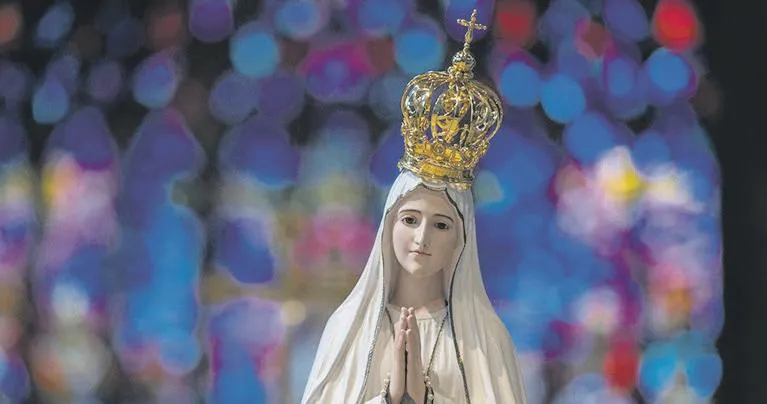Fatima (2020), directed by Marco Pontecorvo, is due to be released on UK streaming services on 25 June 2021.
Last week I watched Fatima with a small group of guests staying at the L’Abri community where I live and work. Fatima is a historical drama based on the alleged miraculous appearances of the Virgin Mary in 1917 to three peasant children near the Portuguese town of Fatima. Over a period of six months Mary appeared to Lucia (10), Jacinta (7) and Francisco (9) – very believably acted by Stephanie Gil, Alejandra Howard and Jorge Lamelas – and revealed three secrets; a vision of hell, a prophesy of the imminent end of WWI, and a mysterious third secret concerning the murder of the Pope (which was only revealed by the Vatican in May 2000). As news of these Marian apparitions spread, people came from far and wide to be present at these monthly visitations, culminating in October 1917 when a crowd of around 70,000 gathered, some of whom claimed they witnessed the sun dancing in the sky.
The film starts by inviting us into a posture of doubt with a fictional Professor Nichols (Harvey Keitel) visiting the aged Lucia (Sonia Braga) in a Carmelite monastery in 1989 (Lucia became a nun in 1928 and died in 2005, the other two children having perished in the 1919-20 influenza pandemic). Nichols is a rationalist debunker of miracles, and the film cuts back and forth from the events of 1917 to his inquisition of the older Lucia. Nichols, however, is not the only doubter that Lucia and the children face. Lucia’s pious and hard-to-please mother (Lucia Moniz) is embarrassed by her daughter’s claims, and the local mayor (Goran Visnjic) briefly imprisons the children rather than have them spread primitive superstition when their community should be embracing the forward-thinking ideas of the recently formed Portuguese Republic. I was disappointed that the conversations between Nichols and Lucia didn’t go anywhere, leaving me wondering whether the film was really interested in exploring the truth or just holding up straw men. On the other hand, I couldn’t help but admire the tenacity of the three children, whose simple faith stood firm when surrounded by adult doubt.








The unreached 94 per cent
Culture – in the evangelical church, we often talk about this in the context of mission and those of different …